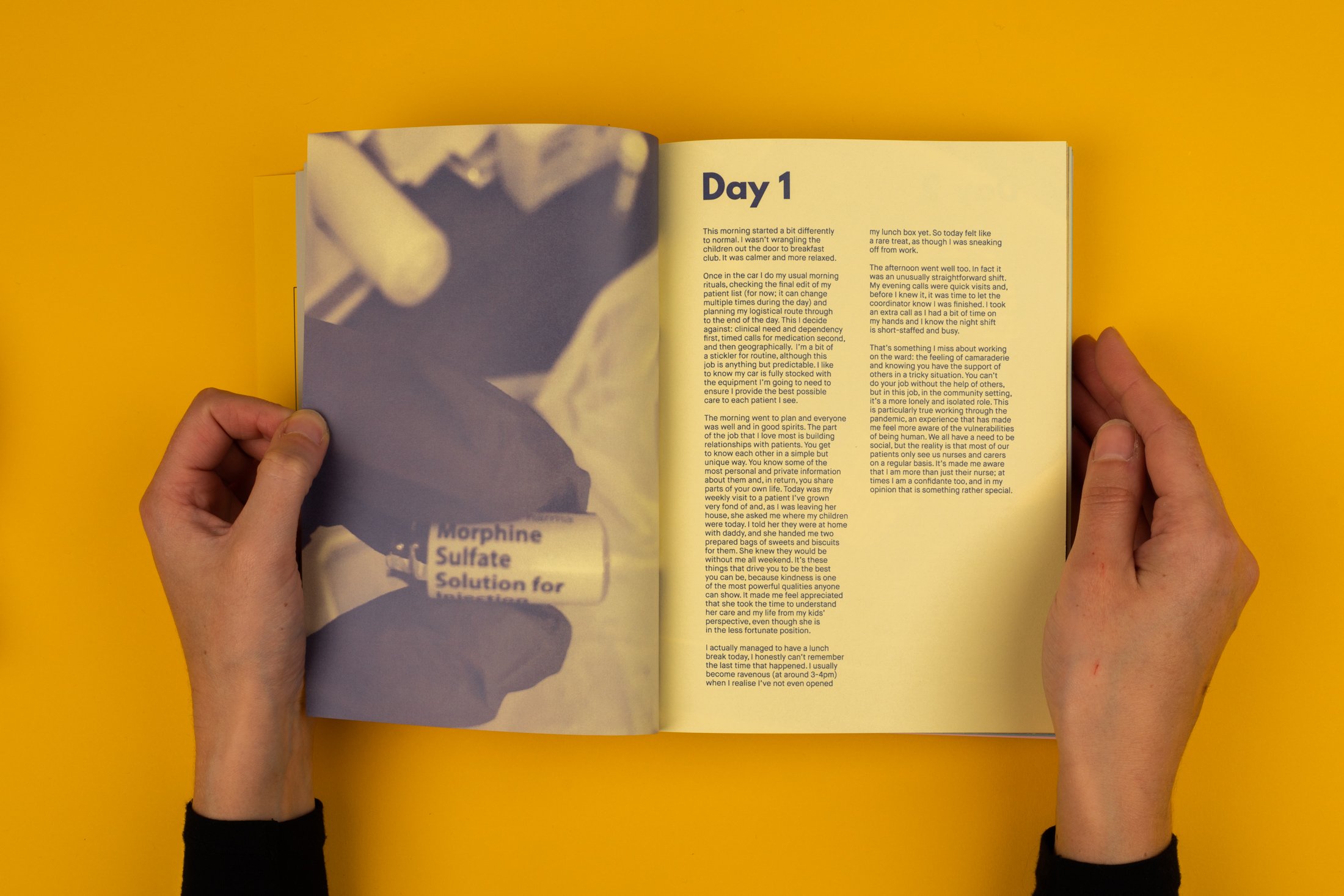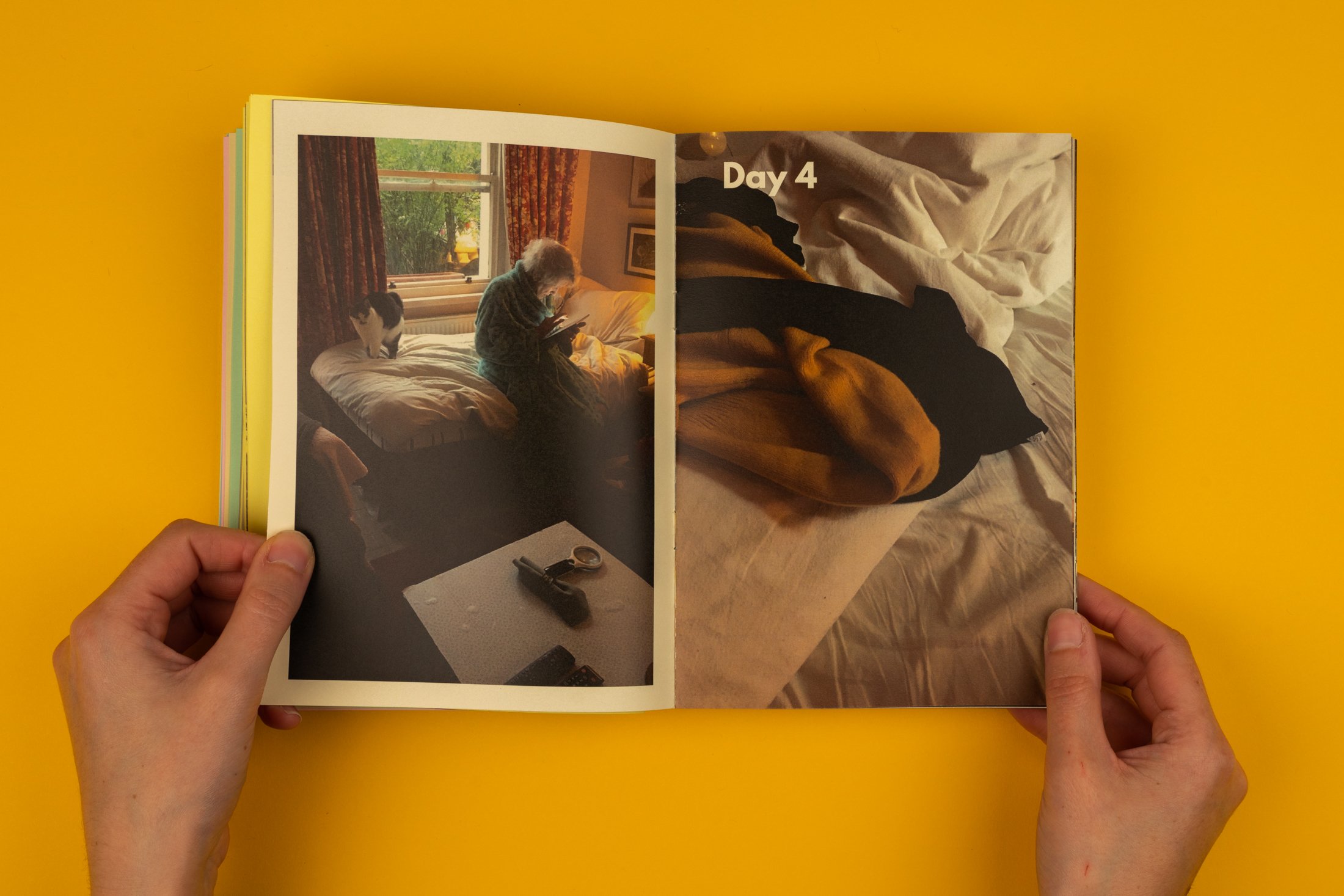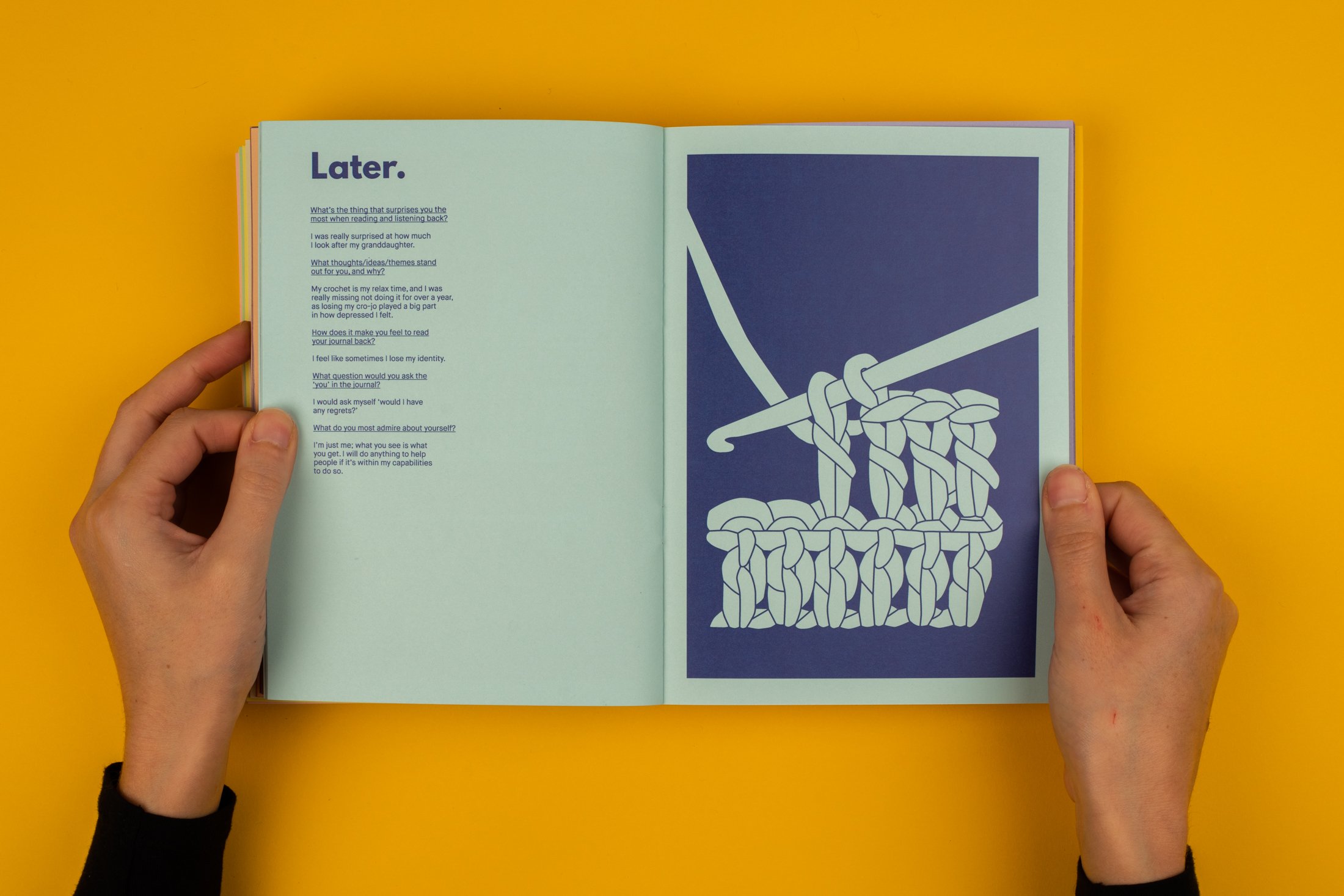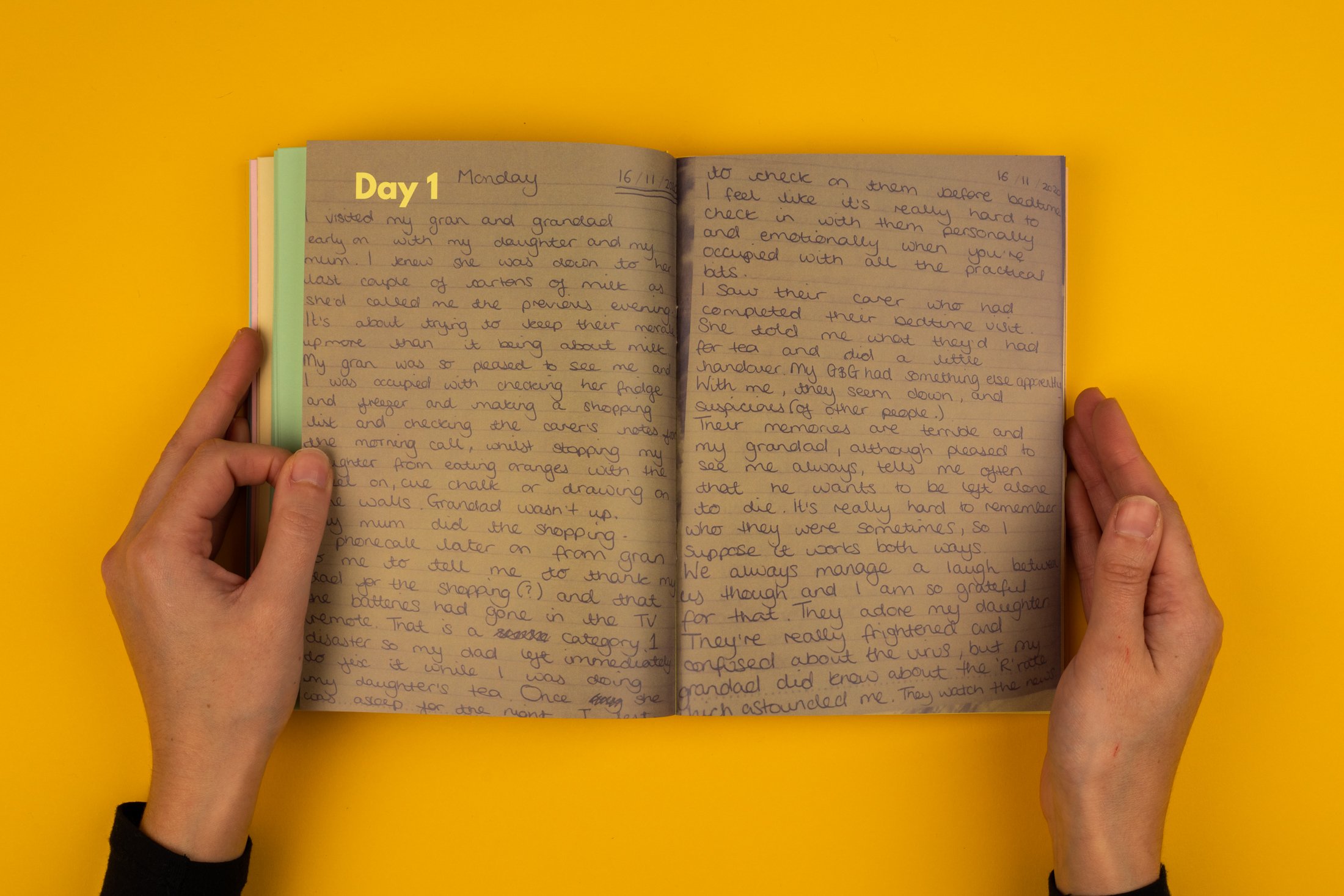Who Cares?
One of the most rewarding pieces of work I’ve been involved in over the past year is the Who Cares? project. It was done with my Self-Other hat on, along with fellow co-founders Simon Newitt and Emily Macaulay.
At some point towards the end of 2020 we were discussing areas we’d like to explore more, topics or communities that felt in need of observation and understanding, both by us, and whoever might see the work. The idea of ‘care work’ was on our minds, we were in the midst of a pandemic, and everyday our eyes were filled with examples of compassion.
I had my own personal reasons. I was dealing with a very emotional ‘care’ situation with my nan, and as anyone who has had to deal with such things could probably understand, it was often hard to comprehend why things were happening in a particular way. I basically stumbled into a world I realised I knew nothing about, and knew that at some point in life, nearly everyone else would have that moment as well.
Pre pandemic we would have set about finding people involved in care work to spend time with, to observe, photograph, and write about. We would have also supported them in participating, by journaling and capturing their own ‘ethnography’. But Covid got in the way of all the face to face work, and so our methodology was based solely around the participants journaling, and regular Zoom interviews.
I joined each Zoom interview with a mixture of trepidation and nervousness, mainly because I treat all interviews I do very seriously. The act of listening, of giving a person space and time to speak their truth feels like a gift to give someone, but I also acknowledge the recounting of personal life stories carries with it a certain emotional toll. This is not work to take on lightly.
Those calls, as well as the daily entries from the carers mounted up, and it became clearer as time went on that this was going to be more than a single small book. Each participant had their own unique story and way of sharing it, and we wanted to honour their journals in the most appropriate way. And so, the idea of the anthology was born.
Emily started to come up with ideas on how best to produce the anthology. We were sent multiple images of various types of binding, but the one we picked, a plastic medical binding, felt right.
My nan passed away in the middle of the project, and I guess I felt as if I was putting my all into this work because I wanted to do my bit to improve social care in England, in her memory and for others still to need it. The only way we can do that is by helping people understand what the work is, who the people are behind that work, and why they need to be valued so much more than they are right now.
We still have copies of the book available for free. If this work is important for you, please order one.
I’m always interested in chatting to people about how they can understand and listen to their community, so get in touch.





